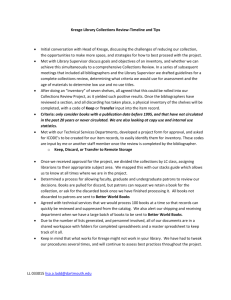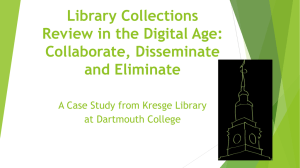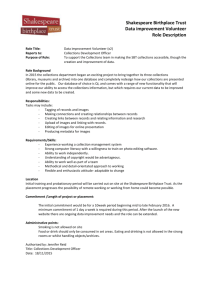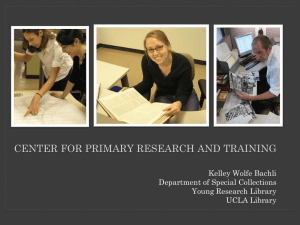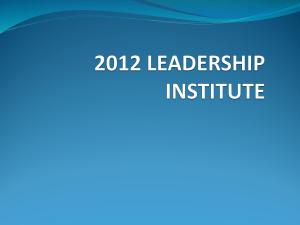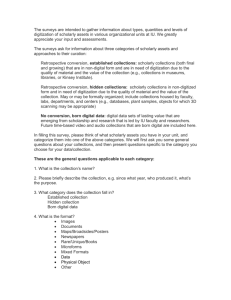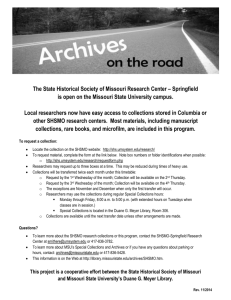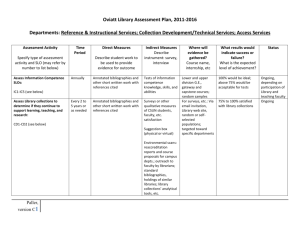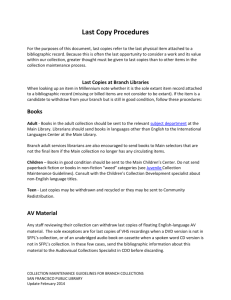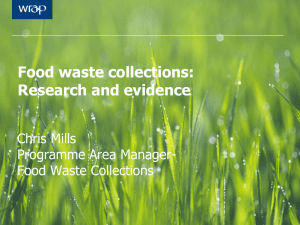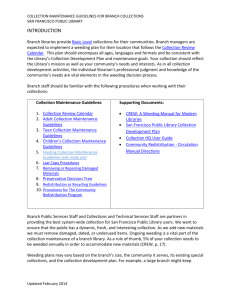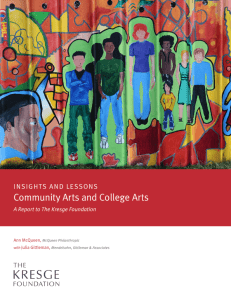Lisa Ladd, Library Collections Review in the Digital Age
advertisement
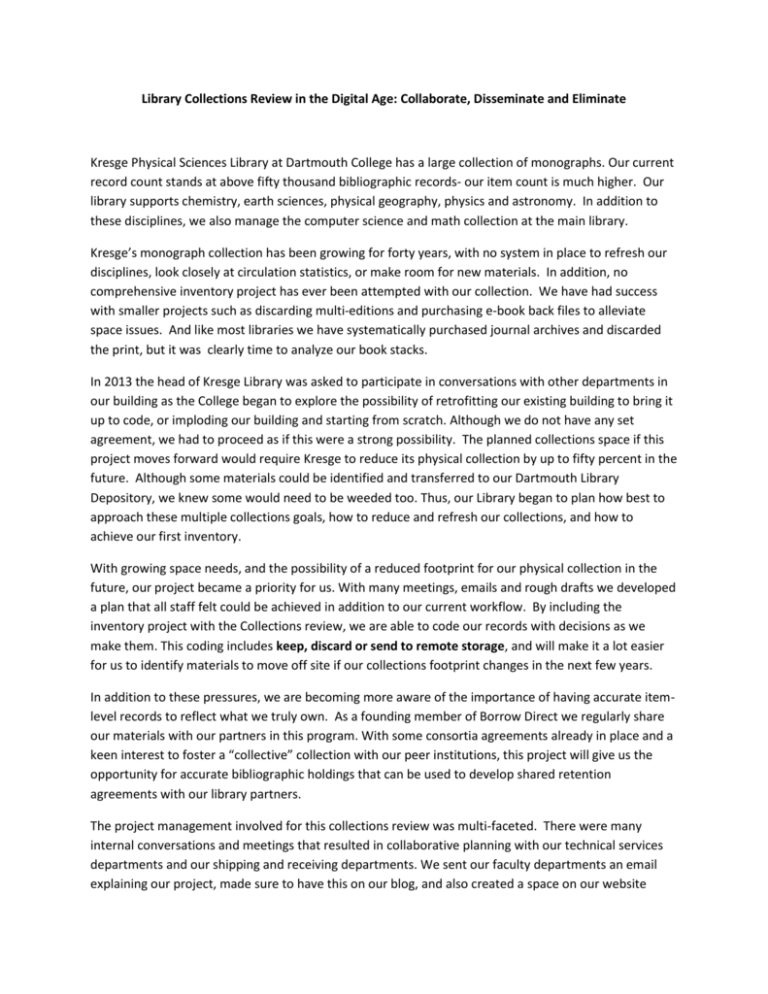
Library Collections Review in the Digital Age: Collaborate, Disseminate and Eliminate Kresge Physical Sciences Library at Dartmouth College has a large collection of monographs. Our current record count stands at above fifty thousand bibliographic records- our item count is much higher. Our library supports chemistry, earth sciences, physical geography, physics and astronomy. In addition to these disciplines, we also manage the computer science and math collection at the main library. Kresge’s monograph collection has been growing for forty years, with no system in place to refresh our disciplines, look closely at circulation statistics, or make room for new materials. In addition, no comprehensive inventory project has ever been attempted with our collection. We have had success with smaller projects such as discarding multi-editions and purchasing e-book back files to alleviate space issues. And like most libraries we have systematically purchased journal archives and discarded the print, but it was clearly time to analyze our book stacks. In 2013 the head of Kresge Library was asked to participate in conversations with other departments in our building as the College began to explore the possibility of retrofitting our existing building to bring it up to code, or imploding our building and starting from scratch. Although we do not have any set agreement, we had to proceed as if this were a strong possibility. The planned collections space if this project moves forward would require Kresge to reduce its physical collection by up to fifty percent in the future. Although some materials could be identified and transferred to our Dartmouth Library Depository, we knew some would need to be weeded too. Thus, our Library began to plan how best to approach these multiple collections goals, how to reduce and refresh our collections, and how to achieve our first inventory. With growing space needs, and the possibility of a reduced footprint for our physical collection in the future, our project became a priority for us. With many meetings, emails and rough drafts we developed a plan that all staff felt could be achieved in addition to our current workflow. By including the inventory project with the Collections review, we are able to code our records with decisions as we make them. This coding includes keep, discard or send to remote storage, and will make it a lot easier for us to identify materials to move off site if our collections footprint changes in the next few years. In addition to these pressures, we are becoming more aware of the importance of having accurate itemlevel records to reflect what we truly own. As a founding member of Borrow Direct we regularly share our materials with our partners in this program. With some consortia agreements already in place and a keen interest to foster a “collective” collection with our peer institutions, this project will give us the opportunity for accurate bibliographic holdings that can be used to develop shared retention agreements with our library partners. The project management involved for this collections review was multi-faceted. There were many internal conversations and meetings that resulted in collaborative planning with our technical services departments and our shipping and receiving departments. We sent our faculty departments an email explaining our project, made sure to have this on our blog, and also created a space on our website posting our discard lists for review. In addition, librarians alert their departments to new discard trucks when the collections fall within their discipline. Much of the physical work of this project will be done by me or the Library Supervisor. We also rely on student workers to retrieve trucks of materials for review by the bibliographers, before they are given to us to complete the record coding and inventory steps. Best laid plans sometimes get put on hold, and our project was suspended temporarily due to more pressing needs for collections projects within the Dartmouth College Library System. We plan to resume our project in June, and are still hoping for a completion date of 2018.
